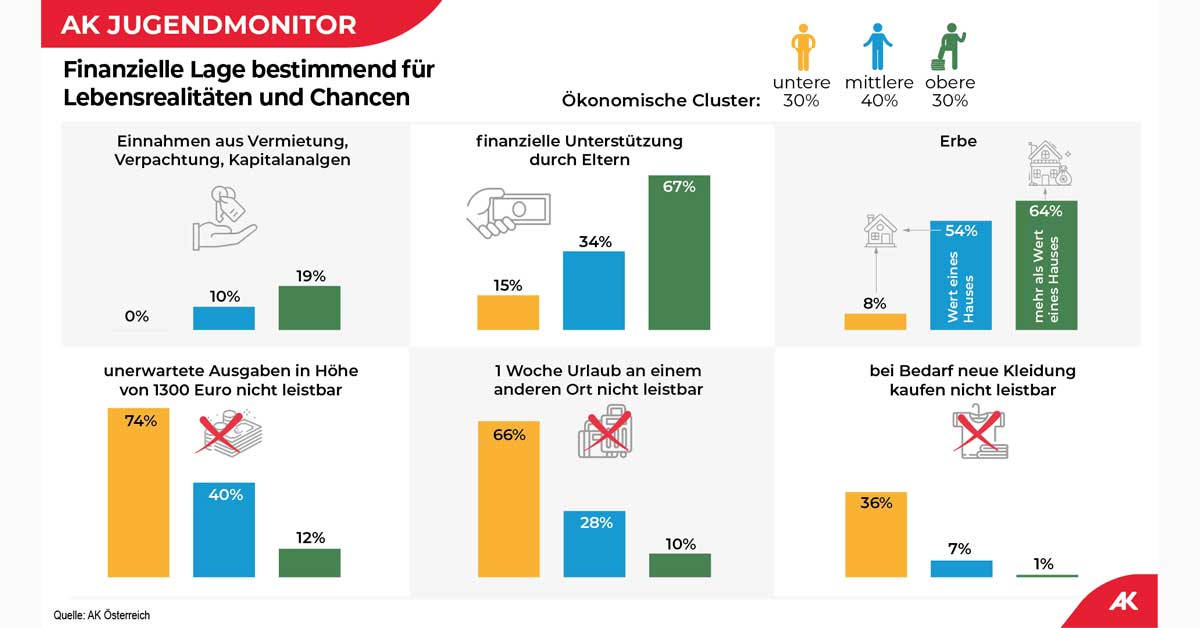

15 July 2024  Money rules the world, and even in Austria, a country committed to social justice, the young population (16-29 years old) is divided when it comes to opportunities for a good life, access to education and actively designing the future. The latest study of the Chamber for Workers and Employees (Kammer für Arbeiter und Angestellte - AK), published on https://wien.arbeiterkammer.at/service/presse/AK-Jugendmonitor-2024.html, shows that even if the young population is increasingly divided, there is one negative impact that even the wealthier have experienced in recent months. Overall, the most widespread impact is on leisure time: 59% of young people have had to cut back on going out, paying for leisure activities and/or vacations in the last twelve months. One of the questions in the survey was about fashion. In the picture above, the chart on the bottom right shows that 36% of the poorer group (30% of Austrians aged 16-29) cannot afford to buy new clothes when needed. Austria is in election mode and studies like the Chamber of Labour's Youth Monitor 2024 could be seen as a political instrument. And yes, why not. It is part of the official tasks of the Chamber to conduct studies and to publish the results and tips for the government. In this case, it provides some results that should be taken seriously for future strategies. The Youth Monitor, which is based on a survey of 1,200 young Austrians conducted between February and April 2024, was commissioned by the Chamber of Labour, which has a good reputation in Austria for its objective view of the current situation and the quality of its proposals for improvement. It was released just in time for the next national elections on September 29, 2024. A few days ago, the results were presented at a press conference, including the impact of the financial situation of young people on democratic engagement, which decreases in groups with greater pressure due to inflation on everyday expenses, such as the cost of living, which has risen sharply in recent years. More than half of the young people surveyed exhausted their savings, overdrew their accounts or took out loans in the past year. One quarter faced housing problems, and one in five altered or abandoned educational plans due to cost. These impacts are more severe for the bottom 30% financially, the poorest group. Ilkim Erdost, head of the Education Department of AK Vienna, said that the inflation crisis is affecting the future of young people, which in turn is affecting the future of the country. Erdost pointed out that only half of the youth believe that they can make a difference through political participation, which weakens democracy. Based on the results of the Youth Monitor, Erdost emphasized that in order to regain their trust, it is necessary to fight the growing inequality and to enable young people to build their own future, regardless of their starting position. In the press release, AK summarized recommendations on how to improve the current situation of young people, such as supporting young people during their education in order to prevent them from dropping out of school, measures to reconcile study and work, or ensuring affordable housing, just to name a few from a long list. Image: The picture shows several graphs - one of them about the affordability of clothes when needed - from the Youth Monitor 2024, commissioned by AK - Arbeiterkammer für Arbeiter und Angestellte and presented at a press conference in Vienna on July 11, 2024. |